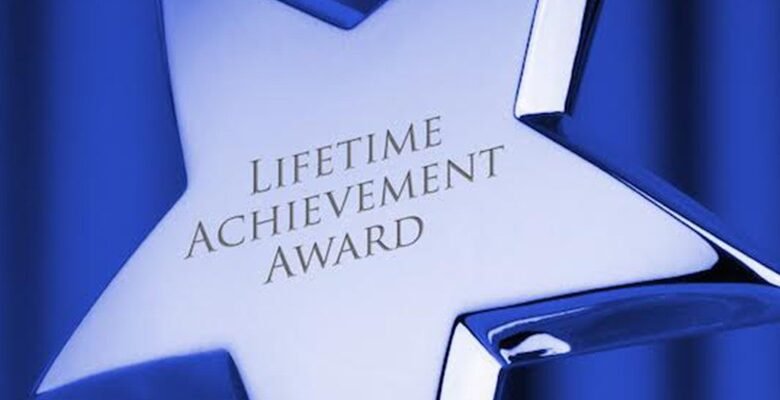The Golden Mile: Understanding Achievement Awards and Their Impact

Introduction
Achievement awards are formal recognitions given to individuals or teams for notable accomplishments, sustained excellence, or milestone contributions within organizations, schools, communities, or industries. These awards range from simple certificates of appreciation to prestigious trophies or monetary prizes, and they serve as tangible symbols of value and appreciation. Beyond the physical token, achievement awards communicate an organization’s priorities the behaviours, skills, and outcomes it values most. When thoughtfully designed and fairly administered, awards reinforce positive behaviours, increase engagement, and create visible role models for others to emulate. However, poorly designed awards can create resentment, appear arbitrary, or incentivize short-term thinking. This article explains what achievement awards are, why they matter, common types and selection criteria, and practical best practices to design and run award programs that are equitable, meaningful, and aligned with long-term goals.
What is an Achievement Award?
An achievement award is a structured recognition given to a person or group for accomplishing a defined goal, demonstrating exceptional performance, or providing noteworthy service. Unlike casual praise, an achievement award is typically formal: it has a nomination or selection process, defined criteria, a visible presentation moment, and a record of recipients. Awards can celebrate one-time accomplishments (like launching a successful product), long-term contributions (years of outstanding service), or specific behaviours (innovation, leadership, community impact). The clarity of purpose matters: awards tied to strategic objectives are more effective than vague accolades. For recipients, an award validates effort and skill; for peers, it signals desirable behaviours; for the organization, it documents success. Transparent criteria and a fair process help ensure awards are credible, reducing perceptions of favourites or politics. When aligned with organizational values, achievement awards become a powerful tool for culture-building and continuous improvement.
Why Achievement Awards Matter
Achievement awards matter because they translate abstract appreciation into concrete recognition, reinforcing behaviour and motivating others. Psychological research and practical experience both show that recognition increases engagement, satisfaction, and retention: people who feel seen for their contributions are more likely to stay and perform at higher levels. Awards also create storytelling opportunities sharing recipient stories helps communicate what success looks like in practice and makes goals feel attainable. At the organizational level, awards can support employer branding, attract talent, and strengthen external reputation when milestones, innovations, or social impact are celebrated publicly. However, the effect depends on perceived fairness and relevance: awards that are inconsistent, biased, or disconnected from real work can backfire. To maximize impact, combine awards with development opportunities and clear feedback so recognition becomes part of a growth-oriented feedback loop rather than an isolated pat on the back.
Types and Criteria for Achievement Awards
Achievement awards come in many forms, from certificates and plaques to scholarships, bonuses, and title promotions. Common categories include performance-based awards (sales targets, KPI achievement), innovation awards (new ideas or process improvements), leadership awards (mentorship, team guidance), service awards (years of service or community involvement), and special recognitions (crisis response, cross-functional collaboration). Selection criteria should be explicit and measurable where possible: define outcomes, behaviours, and evidence required for nomination. Examples of good criteria include measurable results (percent improvement, delivery milestones), demonstrated behaviours (collaboration, initiative), and documented impact (customer testimonials, cost savings). Some awards use peer nominations to capture qualitative contributions, while others rely on objective metrics. Hybrid models combining quantitative thresholds with qualitative review often balance fairness and nuance. Importantly, criteria should be communicated widely and reviewed regularly to ensure they remain aligned with strategic priorities and evolving standards.
Best Practices for Designing an Award Program
Designing an effective award program requires intention and consistency. Start by aligning awards with organizational values and strategic goals, ensuring each category supports desired outcomes. Create clear, published criteria and nomination procedures so employees understand how winners are chosen. Use a transparent selection process for example, a mixed panel with senior leaders, peers, and an independent reviewer to reduce bias. Celebrate winners visibly (events, newsletters, intranet features) and explain why they were chosen to maximize learning and role modeling. Keep awards inclusive: recognize contributions across levels and functions, and include non-monetary options (development grants, mentoring slots) that support growth. Track outcomes to measure program effectiveness: engagement scores, turnover rates, and qualitative feedback can reveal whether recognition yields the intended results. Finally, review the program periodically to retire categories that no longer fit and add new ones that reflect shifting priorities or new definitions of excellence.
Conclusion
Achievement awards are more than trophies they are strategic tools that, when designed and delivered well, reinforce values, motivate people, and visibly document success. The most effective programs combine clarity of purpose, transparent criteria, diverse selection processes, and meaningful celebration. By linking recognition to development and organizational goals, awards become part of a continuous cycle of improvement rather than a one-off reward. Whether for a school, nonprofit, startup, or multinational, thoughtful achievement awards build morale, create role models, and help an organization tell its story through the people who make success possible. When fairness and relevance guide the program, awards can transform individual achievements into collective momentum.
Frequently Asked Questions (FAQs)
Q: Who should nominate candidates for achievement awards?
A: Nominations can come from peers, managers, customers, or the individuals themselves depending on the award type. Hybrid approaches widen the candidate pool and surface contributions that metrics alone may miss.
Q: How often should awards be given?
A: Frequency depends on purpose: monthly or quarterly awards work for operational achievements; annual awards suit long-term contributions. Balance frequency to keep recognition meaningful.
Q: Should awards be monetary or symbolic?
A: Both have value. Monetary awards signal tangible appreciation, while symbolic awards (plaques, public recognition, development opportunities) provide lasting visibility and personal meaning. A mix is ideal.
Q: How do you ensure awards are fair?
A: Use clear criteria, diverse selection panels, anonymous nominations where feasible, and documented evidence. Regular audits and feedback loops help identify and correct bias.
Q: Can small organizations run effective award programs?
A: Absolutely. Small organizations can focus on meaningful, low-cost gestures public praise, meaningful certificates, or development opportunities which often have high impact relative to cost.
Q: How do you measure the success of an award program?
A: Track engagement and retention metrics, survey recipient and peer satisfaction, and look for behaviour changes linked to award criteria. Qualitative stories and testimonials are also valuable indicators.



